6 Ways Parents Can Help Keep Teens Safer
It’s a boy. A boy. And yet another boy.
The ultrasound confirmed that I was officially a Mom of triplet sons which meant I was going to have my work cut out for me. It wasn’t the dirt and grime or nonstop action of raising young boys that scared me. The thought of having three sons who would grow into teenagers with a natural ‘need for speed’ is what intimidated me.
Our trio is in high school and the book Born to Be Wild interested me to review because I want to know if we can really help our teenagers navigate risky choices more successfully.
Can parents make a difference when it comes to minimizing risk in their child’s life?
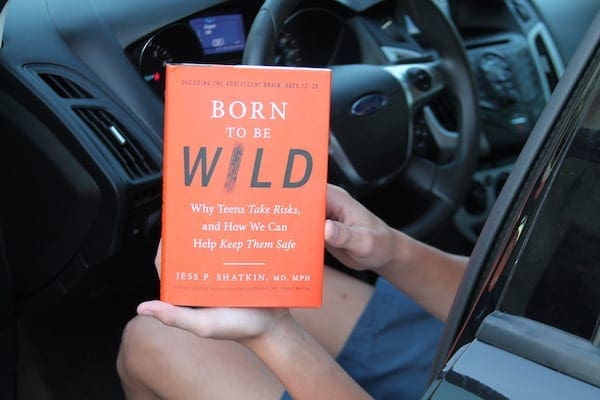
According to Born to Be Wild Author, Dr. Jess. P. Shatkin, we can absolutely make a difference by being proactive in our parenting.
Shatkin is a professor of child and adolescent psychiatry and pediatrics at New York University School of Medicine and also a Dad of two teenagers. His book tells us why teens take risks, and how we can help keep them safer.
How can we positively influence our teenager to make the best choices?
When our kids are young, we need to make many choices for them. As they age toward the teenage years, we need to curate their choices. Adolescence is an enormous developmental opportunity. During these years, we must allow our kids to practice all of the many things that they will one day need to do independently as adults, but we as parents must also continue providing close supervision.
How do we help our kids make healthy decisions when it comes to risky behaviors?
Dr. Shatkin recommends we take Wayne Gretzky’s advice and skate to where the puck will be. See the reality of the road ahead and be proactive in designing strategies to reduce upcoming risk factors in your child’s life.
We’re only kidding ourselves if we choose to believe that our adolescents won’t face risky situations each day. Instead of waiting for those risks to happen, we can anticipate the dangers and be ready for them.
Texting while driving, binge drinking, bullying, unprotected sex, vaping and many other risk factors are real concerns and keep us worried about our growing adolescents today. Being able to protect teens from dangers on the internet should also be a top priority for parents.
Here are 6 proactive parenting strategies for reducing risk in our teens’ lives.
1. Delay their exposure to alcohol, tobacco, and drugs as long as possible
I’m baffled by the number of parents today who condone minors using illegal substances as long as they don’t get in a car and drive after. However, it’s easy to see why some parents find it difficult to control their teens when they get involved with illegal substances. Teenagers are at an age where they want to be independent and spend time with their peers more than their parents, which makes them much more impressionable and easily swayed by friends in a bid to ‘fit in’.
I asked Dr. Shatkin what he thought of the ‘party bus’ trend for high schoolers today and here’s what he had to say…
“The issue basically comes down to whether or not parents wish to condone their kids’ use of alcohol and/or drugs. And this brings us to a parenting decision point – if you’re not comfortable with your child using alcohol and drugs, then they don’t go on the bus. If the parents are okay with their kids using, then they can go. To be pithy, it’s as simple as that – kids on these buses will almost certainly be using, and although they won’t be driving, they will likely engage in other risky behavior (e.g., trying to impress one another in ways that, when drunk, can become dangerous quickly).
The kids on these buses are still minors, so drinking alcohol or smoking weed is illegal behavior. I don’t think that party buses are a good message, nor do I think they are safe for our kids; even though they may not be driving, we’re still facilitating their alcohol and drug use, and they’re still at great risk of bad things happening from overuse, even if they’re not driving.”
And Dr. Shatkin’s most brilliant words of all, “We need to remember that it’s okay to be strict as a parent sometimes.” Hear that fellow Mean mom?
2. Build resilience in your kids
Resilient adolescents simply manage risk better.
Studies have shown that characteristics like being good at managing emotions, having good impulse control, showing empathy toward others, having a sense of purpose in life and feeling self-efficacious, or believing that you have some control over your own life, resulting in higher levels of resilience among adolescents.
Sheryl Sandberg tells us How to Build Resilient Kids
3. Encourage well-regulated risky activities
Shift the risk paradigm from one of fear to opportunity. We can encourage our kids to participate in well-regulated risky behavior, like rock climbing, whitewater rafting, go-karting or skateboarding rather than leave them to their own devices. Take them to amusement parks and concerts where we can supervise them from a distance.
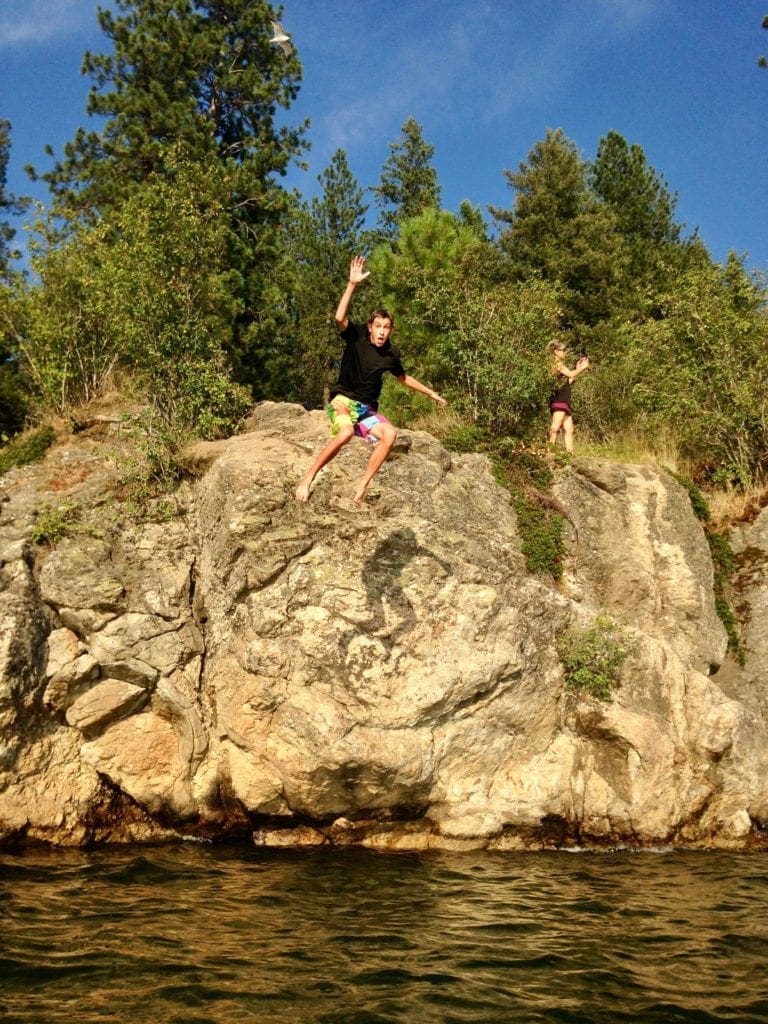
By providing our kids with meaningful challenges that engage their risky brains, we appease their “need for speed” and help them establish new skills and neural connectivity, all of which will enhance their problem-solving skills, emotional regulation, and self-efficacy.
4. Find time to just “be” with your kids
The more we know about our children, the fewer risks they tend to take. Spend time with your kids and get to know who they are and what makes them tick. Know their friends. Sit around the dinner table with them and talk. Let them know you care about them and their life without being overbearing.
We must have everyday interactions, teachable moments, and specially chosen activities and outings to work with teens’ need for risk, rewards and social acceptance, not against it.
5. Monitor and manage media exposure
Parents cannot allow kids to have free reign of devices. We must put limits on our kids’ use of smartphones, video games, and television. Shatkin recommends having a fruit bowl or other convenient spot where phones go until homework is completed. Our teens need us to help them set limits, whether they understand that or not.
Shatkin lists nine great guidelines for tech use in Chapter 8.
6. Practice for their difficult moments
Planning out your teens’ decision pathways ahead of time will lower their anxiety and help them feel more in control.
There’s a balance between over policing your kids and trusting them to make good decisions. They need practice making decisions in risky situations just like we need practice in monitoring their behavior.
Having better decision-making abilities are correlated with having fewer troubles with peers, better conduct and greater emotional stability in adolescence. We must give our teens the ability to develop good judgment and decision making skills.
The X-Plan made it’s way around social media earlier this year as the author encouraged parents with his proactive family tool for teens to use in their difficult moments.

Buy the Born to be Wild book if you want to proactively parent your child toward making better choices when it comes to taking risks. Gain solutions to work with teens’ need for risk, rewards, and social acceptance, not against it.
Skim over all of the writings about the brain and clinical findings in the book if that happens to bore you, but chapter eight on What Parents Can Do to Reduce Risk-Taking is worth its weight in gold.
How good of a job are you doing at keeping your teen safe?
*I received a free review copy of the book Born To Be Wild through FSB Associates.

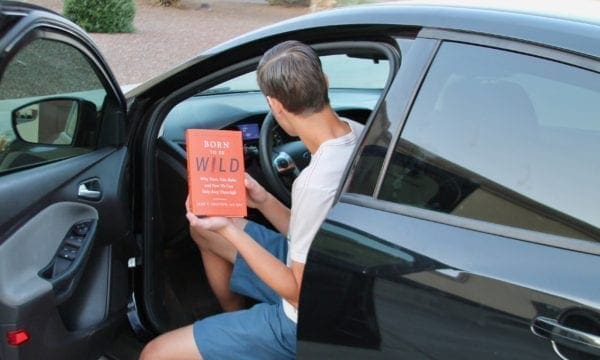


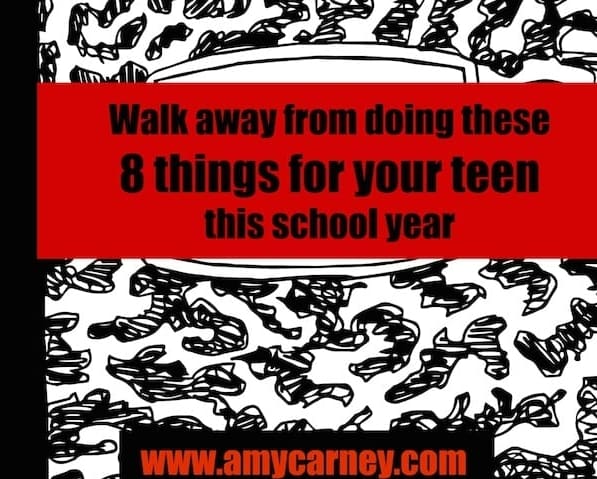
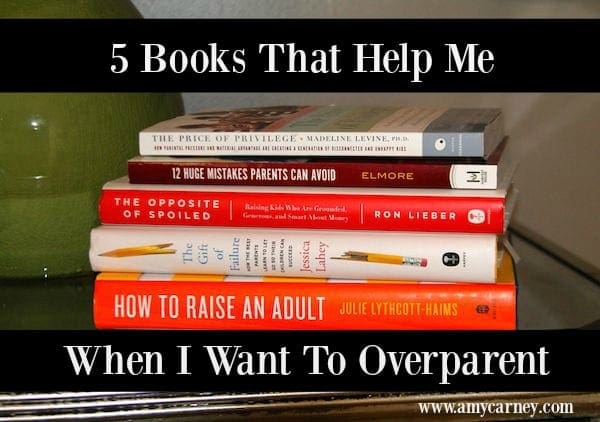

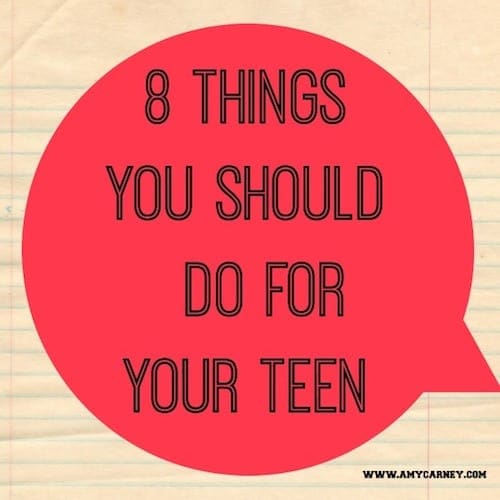

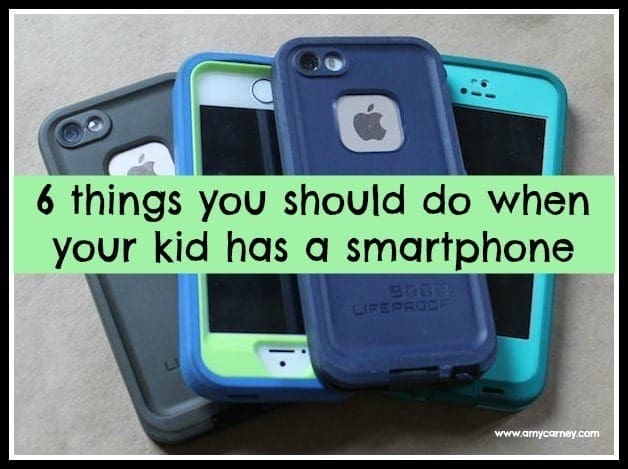
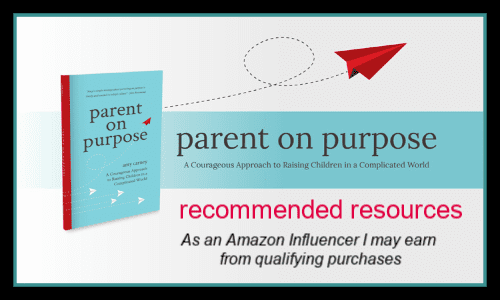


This book looks awesome and would be a great resource to add to my parenting collection!
Looks interesting. One of the challenges I find is that they have to be on a device for school work(iPad or computer) and its hard for them to manage not switching over to play games.
So thankful for this site and dying to read your book!
That looks interesting. My oldest is only nine, but I’m starting to hear little things here and there that concern me about some of his classmates’ behaviors. He’s also very independent and convinced he knows more than us about just about everything, so convincing him to consider that we’re older and wiser takes a lot more effort. Socially he’s a little bit different than most kids, and I know we’ll have our work cut out for us when he reaches riskier stages. I’m trying to sprinkle in little things here and there now (last night, for example, we talked a bit about the heroin epidemic) so he’s aware of these things when they start coming at him. Scary stuff.
Our oldest son is 17 and we have been through quite a rollercoaster ride. Our family has made many incredible changes in the past several years through His refining process. Your book would be an wonderful tool of encouragement and tips to help us on our path to raising our other children as well as as passing on to friends and family who are going through similar struggles and concerns.
This is exactly what I could use. I am a Mom of 4 boys ranging in age from 13 to 4. All highly active and one in particular is a super risk taker. My oldest at 13 is my “ worry boy””….. he’s a dare devil in a lot of avenues and keeping him safe is constant in my mind. Thank you for the guidance…. MB Dion
Hi Mary Beth! You are the winner of a copy of Born to be Wild! Congratulations and thanks to all who commented and entered!
I have three children, a 15, 13, and 12 year old. This book would be a beneficial resource. Thank you for being a source of information and affirmation in the journey of parenthood. Your newsletter is a blessing.
My son is turning 12 this week, and we have a very close relationship, especially when it comes to being open about sex, sexual health, sexuality, bullying, and many other topics that many parents find it hard to talk about.
But a lot of things have changed for him this year. For both of us, really. I have an incurable illness and it has become so severe now that I had to sign guardianship papers so my parents can help me too. They are doing the lionshare of the work, and I am more of a consultant now. It has been absolutely crushing for me, and really hard on him as he watches Mom get sicker, and has had to move upstairs with Grandma and Grandpa as parents instead of grandparents. Thank you for sharing ways for me to help guide my son through the unique challenges his life is presenting him with. And thank you for helping me learn more and more ways for my son and me to stay connected and continue with the incredible bond I have worked so hard to cultivate with him. You give me hope that I still have an extremely important role as a mother, when I have felt very much like I had to give that up in order to be sure he stays safe and supervised in a way my illness will no longer allow me to do. Thank you so much. I can not ever tell you how much it means to me to know that I can still be his mom and have a meaningful role in his life and in helping him navigate the world, even if my duties had to change.
This book looks great! With 3 boys who will be getting their driver’s licenses in a few months, I worry about how they will handle this new responsibility. We talk to them constantly about safe driving, making good choices, etc., but I still worry about those “not fully developed, impulsive teenage brains”.
Can’t wait to read this book
This book looks awesome!!! Love all of these great tips❤️ It’s funny how much you can prevent by just knowing their passcode. Snapchat should go away. I swear it’s the devil in disguise.????????
I am at the very beginning of the teen journey as my oldest will turn 13 in February! Would love to read this book to better prepare her and myself to navigate these years as smoothly as possible. Thank you!
I am a single (widowed) mom who will be navigating the teenage years primary as a single parent. I would love to read this book to serve as a compass!!